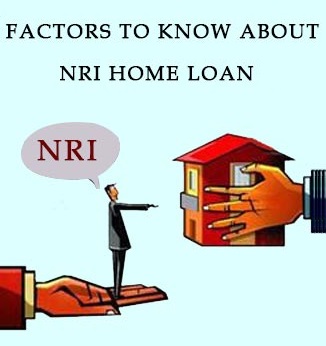 NRI Individuals eligible for Loans in India are as follows:
NRI Individuals eligible for Loans in India are as follows:
Profiles:
♦ Non Resident Indian (NRI), Person of Indian origin (PIO), Overseas Citizen of India (OCI), except Citizens of Pakistan, Bangladesh, Sri Lanka, Afghanistan, China, Iran, Nepal, or Bhutan.
Age:
♦ Minimum age 21 years.
♦ Maximum age limit is 60 years or retirement age (whichever is earlier), at the time of loan maturity.
Work experience:
♦ Applicant should have a minimum overseas work experience of six months with total work experience of 2 years
Minimum Income:
|
For GCC Countries
|
AED 5000 pm (or equivalent)
|
|
For Other Countries
|
USD 3000 pm (or equivalent)
|
|
For Merchant Navy
|
USD 2000 p.m. for 9 months
|
♦ Your income determines the amount of loan you are eligible for. Banks generally keep an EMI to Income ratio at 50% for NRIs
Property Cost & Market Value:
♦ Lower of the Property cost or Market Value is taken by Banks for calculating maximum loan amount. Higher the home loan amount, lower the percentage of funding available as per RBI norms as follows:
|
Home Loan Amt.
|
Maximum Funding
|
|
Upto 30 lacs:
|
Upto 90% of Cost of Property / Property Market Value
|
|
From 31 - 75 lacs:
|
Upto 80% of Cost of Property / Property Market Value
|
|
More than 75 lacs:
|
Upto 75% of Cost of Property / Property Market Value
|
Tenure of the loan:
♦ The longer the tenure you opt for, the more loan you are eligible for as the EMI amount decreases with increase in tenure.
Interest rate offered:
♦ If your interest rates are on a lower side, then the home loan eligibility will be higher and vice-versa as the EMI amount decreases with decrease in interest rate
Existing Loans:
♦ In case you are paying EMIs on existing loans (Both in India and in your country of residence), then the home loan eligibility amount will come down to keep the EMI to income ratio 50%.
Credit History:
♦ In case of NRIs, they might have credit history both in India as well in the country of residence. So Banks check for credit ratings in both countries.
For India, they will pull out the credit report of the NRI from CIBIL which stands for Credit Information Bureau India Ltd. It is a repository of information, which contains the credit history of commercial and consumer borrowers. CIBIL provides this information to its members in the form of credit information reports. Individuals can also access their own credit reports from CIBIL. For more information refer www.cibil.com
For the overseas country, Banks will ask the NRI themselves to provide for a Credit report with score from any authorised Credit Rating agency in their country of residence.
Some of the international companies providing credit rating services are Experion, Transunion, Equifax etc.
Generally a Credit Score of 700 & above is considered GOOD. Many Banks these days are following CIBIL Score based Interest Rates, which means: -
Better your CIBIL Score, Better Interest Rate you will get!
Bank Account in India:
As per RBI Guidelines in India, the NRI loan borrower is required to open an NRO, NRE, NRNR or FCNR account in any scheduled Bank in India.
All payments towards the loan, like initially for processing fees cheque or for loan repayment of EMIs or part-prepayment of the loan have to be made from the NRO, NRE, NRNR or FCNR account only.
POA / GPA Holder:
As per RBI norms and Internal Bank policies, an NRI needs to appoint a General Power of Attorney (GPA or POA) in India who is a local Indian resident. The GPA Holder need not be co-applicant in the loan and so does not share any liability of the loan with the NRI. However, he is to be appointed as a GPA for signing on documents on behalf of the NRI and as point of contact during the tenure of the loan.
Click here to apply for a NRI Home Loan or LAP in India.
 Who is an NRI or PIO or OCI?
Who is an NRI or PIO or OCI?





 Purpose:
Purpose:
 NRI Individuals eligible for Loans in India are as follows:
NRI Individuals eligible for Loans in India are as follows: NRI, PIO or OCI are required to submit various types of documents for a Home Loan Application in India:
NRI, PIO or OCI are required to submit various types of documents for a Home Loan Application in India: An NRI home loan borrower also enjoys all Tax Benefits as available to a Resident Indian borrower. Multiple Tax Benefits on both Interest and Principal repayment under the following sections of the Indian Income Tax Act, 1961:
An NRI home loan borrower also enjoys all Tax Benefits as available to a Resident Indian borrower. Multiple Tax Benefits on both Interest and Principal repayment under the following sections of the Indian Income Tax Act, 1961: ♦ NRIs Loans are charged at same interest rates and fees / charges as a normal Resident Indian
♦ NRIs Loans are charged at same interest rates and fees / charges as a normal Resident Indian
